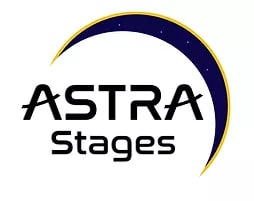“Fulfilling God’s mission for His Kingdom’s sake starts with the recognition that the place where we are standing is Holy ground.”
–Rich Elliott (Facility Director at First UMC Marietta)
Did you know that churches in the U.S. spend nearly $10 billion on energy and maintenance of their facilities? Did you know that, according to the Environmental Protection Agency, 30% of the energy we use is wasted? This means that we have within our grasp the ability to recapture 30% of our facilities budget and redirect it to ministry and mission at no additional cost. If we did, it would not only impact ministry and mission in significant ways but would also have a major impact on God’s creation.
What could your church do with 30% more budget for mission?
Colby May
Founder and President, LIT Consulting:
I am a Certified Energy Manager and Mission Pastor. My journey in energy management started in 2003. I have always had an interest in energy conservation and stewardship. In my energy management work, I have helped perform over 5,000 energy audits at facilities across the U.S. I have a great passion for the mission of God in the world and a yearning to plant churches in unreached areas, to stand with the vulnerable, and to serve the underserved. For a long time, however, I thought these two passions were separate. How could energy management have anything to do with missions? I did not see the connection. So, in 2012 I resigned my position in energy management, packed up my family, and moved across the country from Texas to Massachusetts to attend Gordon Conwell Theological Seminary. My area of focus was Biblical Justice, and I was eager to understand injustice from a biblical point of view. I left seminary passionate about mission and with an emerging understanding of the connection between energy, environment and mission.
A fuller revelation of this came together during my time in the Democratic Republic of Congo in November 2013 at the tail-end of the Kivu Conflict. I was studying the local church’s response to conflict, and the Kivu Conflict was a perfect case study: murder, assault, child solders, hunger, poverty, and in some cases, pastors fighting against pastors. During my time there, I fell in love with the local church’s response to injustice, which focused on reconciliation, unity, and also environmental creativity. The first time I saw the connection between environment and mission was during our drive to a local village. On the mountainside, new fields of Irish potatoes covered land once scarred by war. Leveraging the land as a catalyst for change was new to me. The land provided for the people, enriched their lives, and built stronger communities. What was previously a people and a place gripped by poverty and conflict was now a landscape of peace and reconciliation.
The idea of leveraging the environment as a catalyst for mission stirred something in me. Maybe my two worlds were not so separate after all. But how could I bridge these two worlds back home in the U.S. in a practical way? The answer finally dawned on me. What if the church could use energy management as a catalyst for mission? What if energy audits for churches could be used not only as a means of environmental stewardship, but also of equipping the mission of the church? What if money that a church is currently sending to an electric utility could instead go toward advancing the mission of God?
Rev. Kyle Meyaard-Schaap
Vice President, Evangelical Environmental Network:
That’s exactly what churches across the country are now doing. I have had the privilege of working alongside one of them: Evangelical Community Church in Bloomington, Indiana. Pastor Bob Whitaker describes his journey toward understanding creation stewardship as mission as more or less accidental. Yet, that hasn’t stopped him from helping his congregation understand energy management as a missional imperative and helping them take steps toward deeper energy conservation for the sake of mission. ECC’s facility has achieved a 17% reduction in electrical use over the past three years, and they are currently putting solar panels up on their roof—all of it in the name of faithfulness and mission.
“As I have studied the creation mandate in the book of Genesis,” says Whitaker, “it has changed my orientation toward creation from one of consumer to caretaker. It has produced a new emphasis in our church’s mission: we are stewards of the good gifts that come from God; caretakers in the garden of God.”
Colby May:
Pastor Bob Whitaker and Evangelical Community Church aren’t alone. I have performed audits at over 1,500 churches, seminaries and Christian colleges throughout the US. The average savings per facility is 30%. The good news is the owners of these facilities did not need to spend money to save money, and neither do you.
Here are some ways you can save energy and money right now:
- Setting your thermostat temperature up or down by one degree can save you 1.5% of the HVAC portion of your energy spending.
- Setting your unoccupied cooling and heating setpoint to 85° and 55°, respectively.
- Using a zone conditioned by a 3-ton unit versus a 20-ton unit.
Not only do these and other energy saving practices free up funding to fuel the mission of the church at home and abroad, but they also benefit the health of our local communities. Being good energy stewards also means being good neighbors.
Dr. Jessica Moerman
Senior Director for Science and Policy, Evangelical Environmental Network:
As Christians, we have the incredible opportunity to partner with Jesus in his mission to bring abundant life to all (John 10:10). This includes ensuring our families and neighbors have a healthy environment to thrive in. As a local church leader and an environmental scientist, I have come to the realization that the church has an important role to play. The truth is that America still has a pollution problem, with over 40% of Americans living in areas with unhealthy air that cuts short an estimated 200,000-350,000 lives in our country each year and puts our children at higher risk of developing debilitating diseases, like asthma.
Some of the best ways to clean our communities’ skies and reduce harmful air pollution is making our buildings more energy efficient, enrolling in programs with our utility to supply our building’s power from clean energy sources like wind and solar or installing rooftop solar on our own buildings.
We are all called to tend the garden God has entrusted to us well. In today’s world, that includes our church buildings and facilities. Through wise energy management, we not only become better financial and environmental stewards, but also better partners in the mission of Christ to the world and better neighbors in our local communities.
The Evangelical Environmental Network (EEN) is a ministry that educates, inspires, and mobilizes Christians in their effort to care for God’s creation, www.creationcare.org.
LIT Consulting is all about funding missions and empowering sustainable change through church energy management, www.consultlit.com.
















